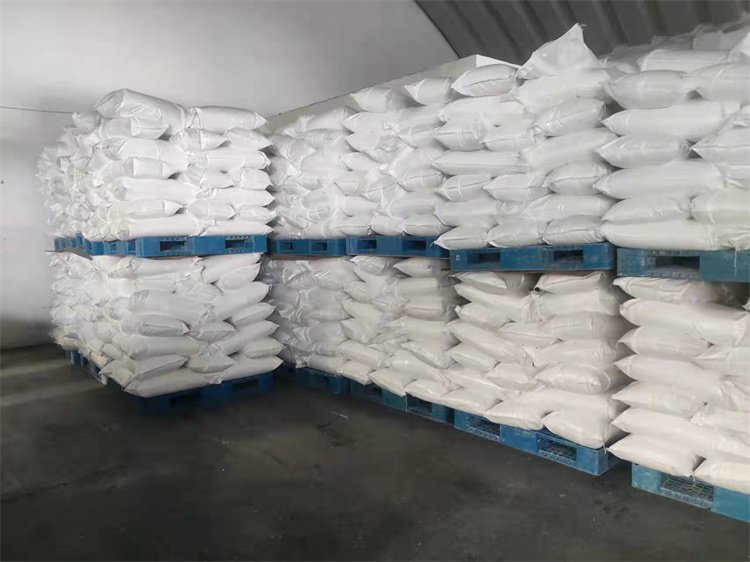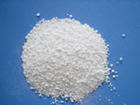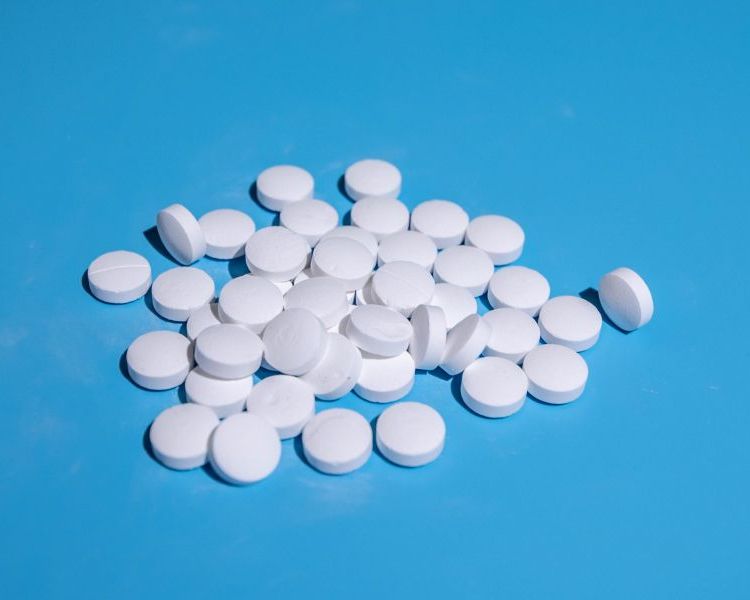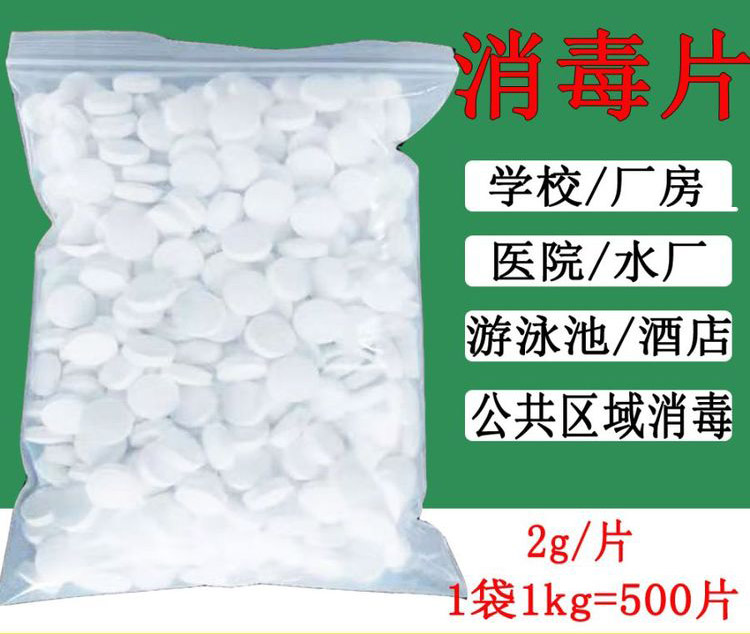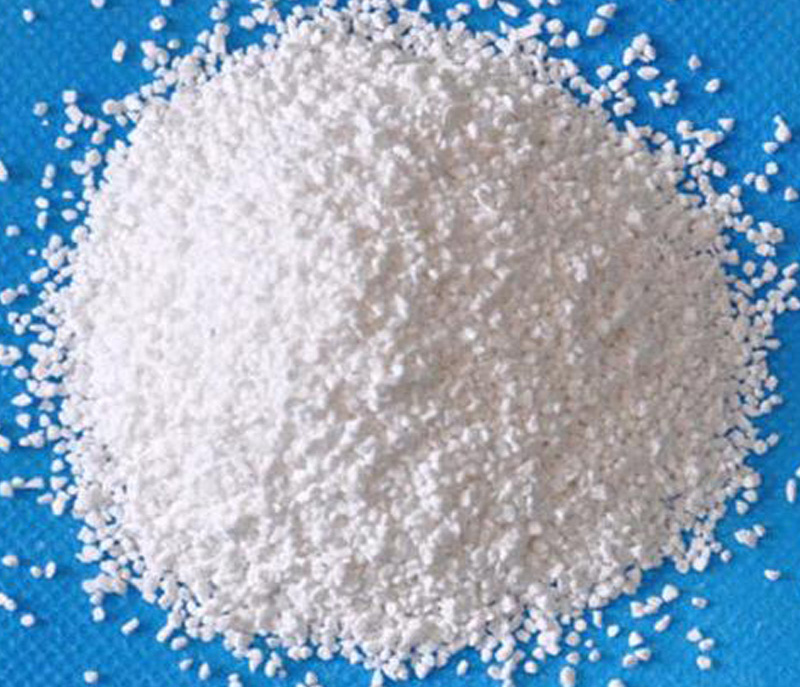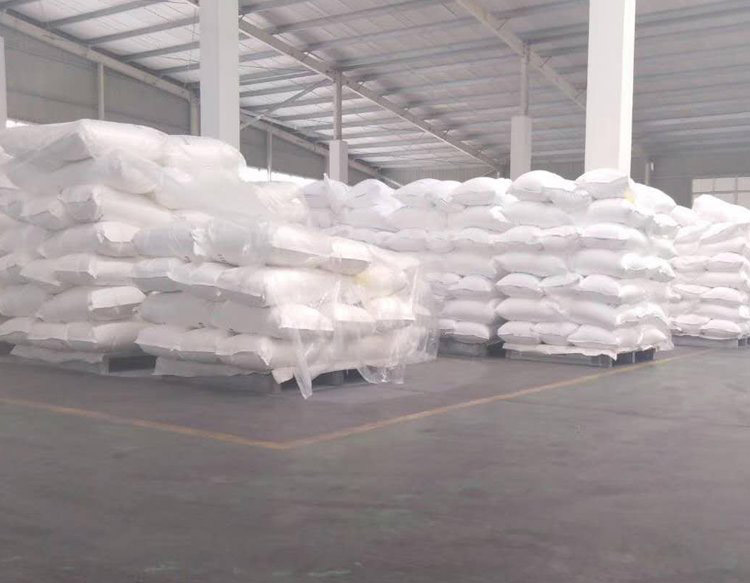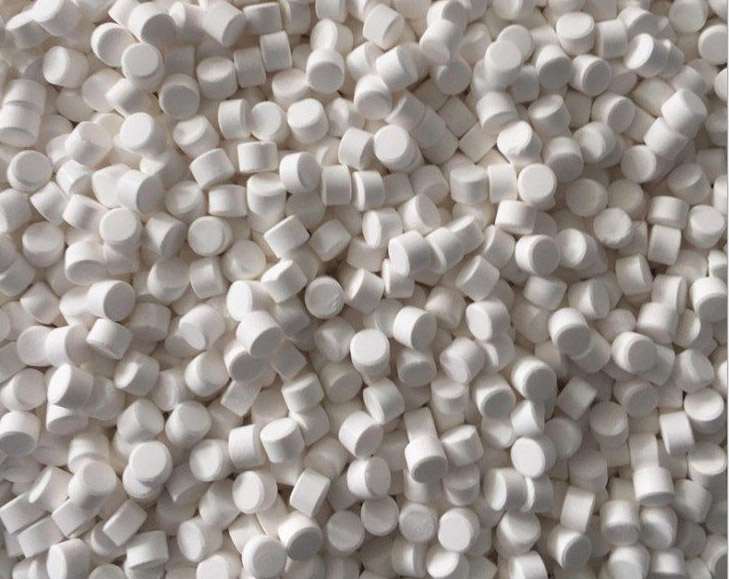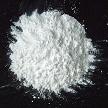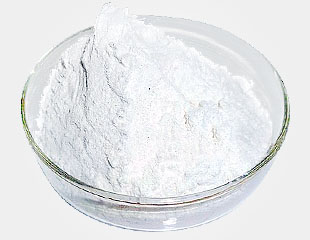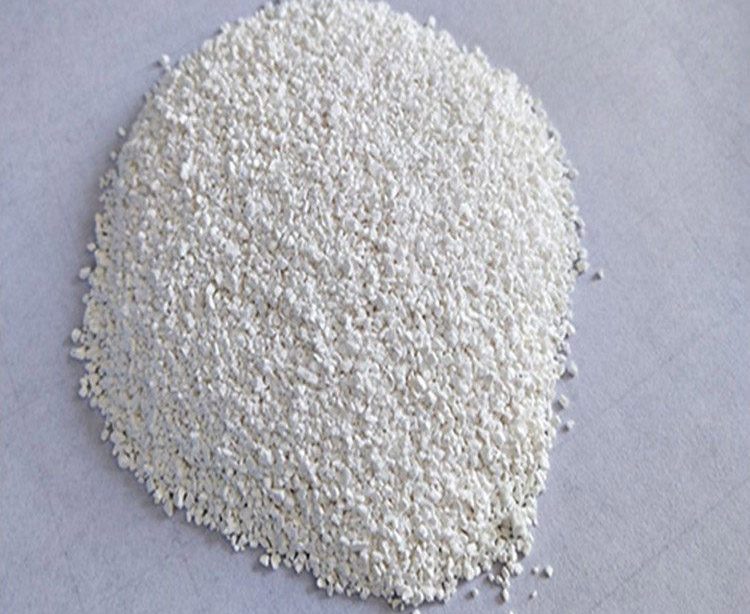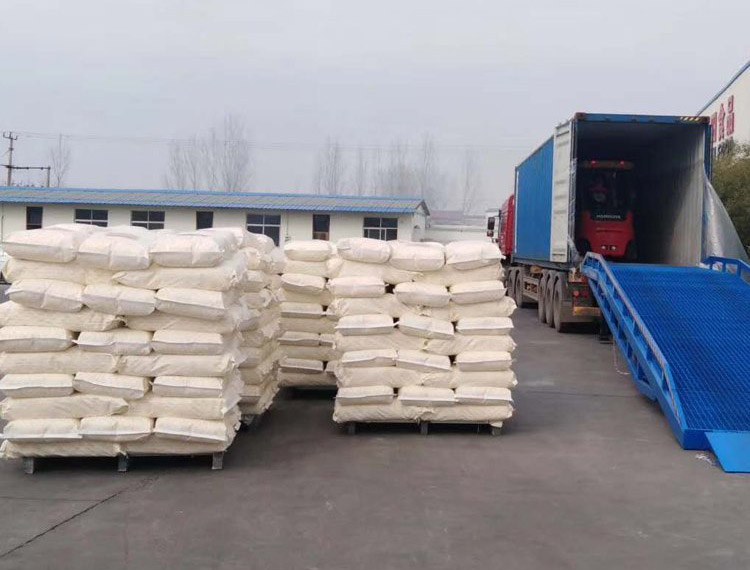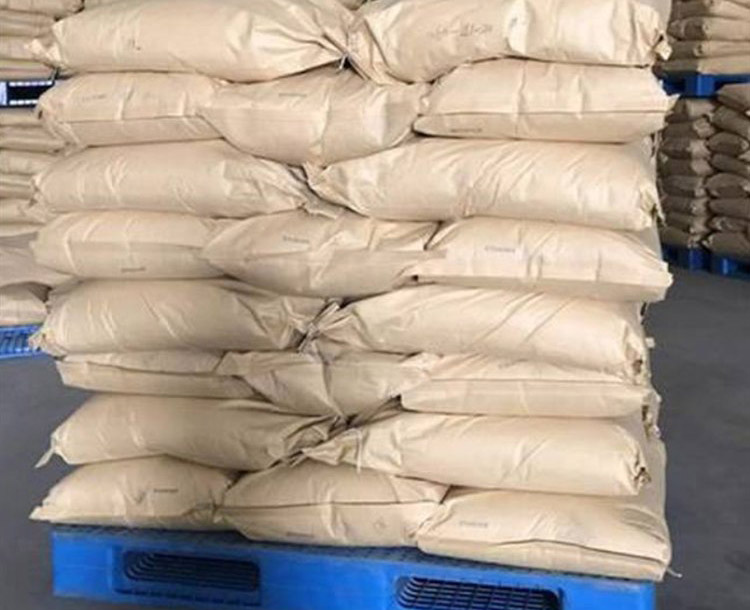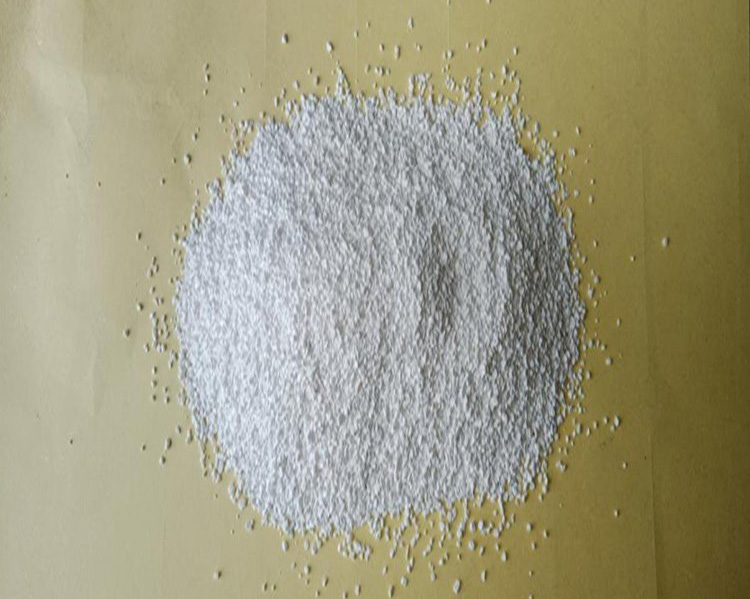Telephone
13562007191
Shandong Kunlian Chemical Co., Ltd.
Contact: Sheng Hongwei
Mobile: 13562007191
13310650871
Contact: Man Song
Mobile: 13468379449
Email: shw2007@163.net
Address: Huangshan Road, Liaocheng Economic and Technological Development Zone, Shandong
Sodium dichloroisocyanurate
Sodium dichloroisocyanurate
Introduce
Basic Information
Chemical formula: C3Cl2N3NaO3
Molecular weight: 219.946
CAS Number: 2893-78-9
Appearance: white powder or granules
Features
(1) Strong sterilization and disinfection ability. The effective chlorine content of pure DCCNa is 64.5%, and the effective chlorine content of high-quality products is more than 60%, which has a strong disinfection and sterilization effect. At 20ppm, the sterilization rate reaches 99%. It has a strong killing effect on various bacteria, algae, fungi and germs.
(2) Its toxicity is very low, the median lethal dose (LD50) is as high as 1.67g/kg (the median lethal dose of trichloroisocyanuric acid is only 0.72~0.78g/kg). It has been approved at home and abroad to use DCCNa in the process of disinfection and sterilization of food and drinking water.
(3) Wide range of applications, this product can not only be used in food and beverage processing industry and drinking water disinfection, cleaning and disinfection of public places, but also widely used in industrial circulating water treatment, civil household sanitation and disinfection, and aquaculture disinfection. .
(4) The utilization rate of available chlorine is high, and the solubility of DCCNa in water is very high. At 25°C, 30g of DCCNa can be dissolved per 100mL of water. Even in an aqueous solution with a water temperature as low as 4°C, DCCNa can quickly release all the available chlorine contained in it, so that its disinfection and sterilization effect can be fully utilized. Other solid chlorine-containing products (except chlorinated isocyanuric acid) have a much lower chlorine value than DCCNa due to low solubility or slow release of chlorine.
(5) The stability is good. Due to the high stability of the triazine ring in the molecule of the chlorinated isocyanuric acid product, the properties of DCCNa are very stable. It is determined that the loss of available chlorine is less than 1% after 1 year of storage of the dried DCCNa in the warehouse.
(6) The product is solid and can be made into white powder or granules, which is convenient for packaging and transportation, and also convenient for users to choose and use.
Applications
DCCNa is an efficient disinfectant with high solubility in water, long-lasting anti-virus ability and low toxicity, so it is widely used as a drinking water disinfectant and a household disinfectant. DCCNa can hydrolyze hypochlorous acid in water and can replace hypochlorous acid in some occasions, so it can be used as a bleaching agent. And because DCCNa can be industrially produced on a large scale and has a low price, it is widely used in many industries:
Anti-shrinkage treatment agent for wool
DCCNa can release hypochlorous acid evenly in the aqueous solution, interact with the protein molecules in the wool scale layer, break some bonds in the protein molecules, and change its molecular structure to prevent wool from shrinking. In addition, DCCNa can also be added to detergents such as washing powder, so that when washing wool products, it can effectively prevent the occurrence of wool adhesion and pilling. Wool fabrics treated with DCCNa have bright color, good hand feel, and basically do not shrink; adding 2% to 3% DCCNa solution to wool or wool blended fibers and fabric impregnation treatment aids can effectively prevent wool and its Product pilling, felt shrinkage and other phenomena occur.
Textile Industry Bleaching
DCCNa is also widely used in bleaching agents for natural and synthetic fibers in the textile industry. The principle of bleaching is to destroy the pigments in natural fibers and synthetic fibers. DCCNa can release hypochlorous acid uniformly in aqueous solution, and hypochlorous acid can react with some chromophoric groups in the fiber through addition reaction with its conjugated bond, destroy the original pigment in the fiber, and make the fiber absorb the wavelength of light change, so as to achieve the purpose of bleaching. Compared with the use of bleaching agents in the traditional sense, DCCNa has great advantages. Traditional bleaching agents can only be used at lower temperatures, because the speed of traditional bleaching agents destroying the molecular structure of fibers under high temperature conditions will be reduced. Accelerate, the strength of the fiber will drop rapidly under its influence. However, DCCNa can still achieve good bleaching effect even at lower temperature; in addition, the use of DCCNa to destroy the molecular structure of natural fibers and synthetic fibers is slow, the bleaching effect is good, and the strength of the fibers will not be greatly affected. In addition, adding DCCNa to the bleaching agent can also improve the hydrophilicity of clothing, remove cotton pulp from clothing, reduce the degradation rate of cellulose, and improve the flexibility and ductility of clothing.
Sterilization and disinfection in aquaculture
(1) Sterilization and disinfection of silkworm breeding If there is some negligence in silkworm breeding, bacteria, diseases and insect pests will damage the silkworm, and even cause the silkworm body to die. Using DCCNa as the main component, adding an appropriate amount of stabilizer and accelerator, the three are evenly mixed to form a disinfectant aqueous solution, and the silkworm body and the living environment where the silkworm body is located can be disinfected and sterilized, which can quickly kill viruses that affect silkworms, Fungi and bacteria. The DCCNa aqueous solution can be sprayed on the silkworm, silkworm gear and silkworm body, which can prevent and control silkworm disease and kill gastrointestinal type pus polyhedrosis, gastrointestinal type pus disease virus, and blood type thick disease polyhedron. Compared with the traditional disinfectant for silkworms, the disinfectant with DCCNa as the main component has higher solubility, more stability and longer duration of efficacy. As an excellent disinfectant for the development of sericulture, DCCNa has little effect on the growth and development of silkworms and silkworm quality.
(2) Sterilization and disinfection of aquaculture In the prevention and control of fish diseases, DCCNa also has a good performance. It can quickly kill bacteria, fungi and other microorganisms in the water body, and can also prevent viral diseases of fish. Therefore, DCCNa is often used for water disinfection of fish, shrimp, crab, frog and other aquatic products. It also has certain applications in the disinfection of fish fingerlings and fish utensils. [Disinfection effect of sodium dichloroisocyanurate on drinking water: After the drinking water is disinfected, the survival rate of chickens is about 97%, while the average survival rate of chickens without drinking water disinfection is 90.07%, an increase of nearly 7 percentage points. The water sterilized by sodium isocyanurate is given to chickens to drink, which is of great benefit to the health of chickens, greatly improves the survival rate of chickens, and naturally improves economic benefits.
Civil Sanitation and Disinfection
(1) Detergent additive Adding an appropriate amount of DCCNa to household dishwashing liquid and other detergents can increase the function of the detergent, so that it can play the role of anti-virus and sterilization, and the effect is very significant when cleaning stains containing protein and juice. 600mg DCCNa can be weighed and added to 1L of water, the tableware can be soaked in water for 2 minutes to kill 100% of Escherichia coli. After 8 minutes of immersion and disinfection, the survival rate of Bacillus is reduced to only 2%. After 15 minutes of immersion and disinfection, hepatitis B virus can be destroyed. Total kill. In addition, DCCNa is also widely used in the disinfection of fruits, vegetables, eggs and other agricultural products, and is a common additive for refrigerator disinfectants and toilet disinfection and deodorants.
(2) Swimming pool water disinfection
The water in the swimming pool is very suitable for the reproduction of microorganisms such as germs. Without frequent disinfection, algae and other microorganisms can quickly grow, causing the water to smell disgusting and cling to the walls of the pool in a slippery, dirty layer. Encountering these dirt while swimming can make the swimmer feel disgusted, and also infect the swimmer's skin, and even the swimmer's eyes, respiratory tract and respiratory organs. An appropriate amount of DCCNa disinfection tablets can be added to the swimming pool water, which can not only keep the water body clear and bright, but also keep the pool wall clean, remove the adherents, and make the swimmers happy. The DCCNa disinfectant tablet has a good sterilization effect under the use concentration, and basically does not harm the human body.
(3) Disinfection of drinking water
Adding an appropriate amount of DCCNa to drinking water can quickly kill microorganisms such as various germs and viruses. Not only that, but DCCNa can also destroy pollutant molecules such as hydrogen sulfide in water, eliminating its color and its odor. DCCNa has a significant killing effect on serotonin virus and coliform bacteria. Adding 10 mg DCCNa per liter of water, the survival rate of Escherichia coli in water is 0.01%.
Industrial circulating water treatment
Many thermal power plants, petroleum refineries, and chemical plants generate a lot of heat during the production process. This heat requires a lot of cooling water to handle. Typically, these industries use heat exchange equipment such as heat exchangers, condensers, circulation pipes, cooling towers, pump systems, etc. But the algae in these heat exchangers are very easy to multiply and breed a lot of fouling. The algae in the cooling water can be treated very effectively by using the fungicide treatment, among which DCCNa is a commonly used cooling water fungicide. DCCNa can effectively inhibit the reproduction of algal microorganisms in cooling water, and has little erosion to industrial equipment, and can keep the water quality in the circulating water system in good condition for a long time. Therefore, DCCNa is an important part of industrial cooling water treatment agent.
Food industry, cleaning and disinfection of public places
Food processing industries such as dairy processing plants, breweries and other beverage factories have also begun to use DCCNa in large quantities for cleaning and disinfection. It is mainly used for disinfection and sterilization of processing equipment such as containers, pipes, tools and sites. There are also some catering industries such as cold drink shops, tea houses, restaurants, etc., which often use DCCNa to sanitize dishes such as trays, bowls, tablecloths, and hand towels. The use of DCCNa can maintain the hygiene of tableware and food processing equipment and eliminate stains, mildew spots, odors, etc. caused by protein, maintain the luster of tableware, and prevent the spread of diseases.
Packing
Inner plastic and outer woven 25kg bag, 25kg/plastic bucket, 50kg/plastic bucket, and can also be customized according to user requirements.Date of publication:2022-5-19 Views:

